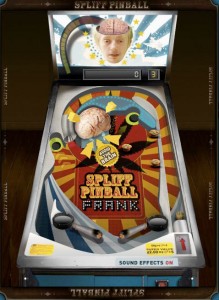…Just some two-bit political analysis on my part.
I’ve been fascinated the past couple of weeks by the vehemence of some of the political pundit discussions regarding Ron Paul’s candidacy.
(Note: Keep in mind that when I talk about progressives/liberals/conservatives in this post, I’m referring to the partisan political writers, not the voters.)
Once it looked like Ron Paul had a chance of taking Iowa, things exploded. Progressives really started having fits. It even got vicious, with some nasty slander directed at Glenn Greenwald and others who were merely trying to point out the indisputable truth that Ron Paul was better than Barack Obama on certain issues that supposedly were important to progressives.
When other Republican candidates were in the lead, progressive sites ridiculed them and discussed their objectionable views, but when Ron Paul took the lead, they went ballistic. They appeared to be really afraid of him.
Probably they had seen the poll that showed Paul doing best of all the GOP candidates in a head-to-head matchup against President Obama.
Additionally, some seemed actually scared of Paul’s small-government views. David Atkins, writing at Digby’s Hullabaloo actually went so far as to say:
Liberalism is and has always been about intervention. It is the opposite of libertarianism, and always has been.
Of course, that’s not only historically inaccurate, it’s a bizarrely frank admission and sounds more like what a critic of liberalism would say.
But ultimately, what was scaring progressive pundits was that progressive voters were finding Ron Paul attractive, despite all his flaws. And they were realizing that they were in danger of losing their own base.
This is a base that they’ve held in check largely by using fear of anti-gay or anti-abortion laws for too many years, as a myriad of other issues of interest to progressive voters (race, drug war, imperialism, government secrecy, etc.) have been ignored or actively undermined by their leadership.
I was particularly interested by how many of the progressive pundits in this set of exchanges actually brought up the drug war. It was usually something along the lines of “You may be attracted to Ron Paul because of his position on the drug war, but keep in mind that the other things he’ll do are so horrible that it’ll destroy civilization as we know it!” Or the rather strange “Ron Paul as President would only do something about federal drug prisoners, not state drug prisoners” (which is, of course, still far better than what Obama is doing).
It’s like every one of these pundits had come to the realization that the drug war has become an issue with real traction — one that they ignore at their own peril. No longer the days of “we have too many important issues to worry about to use up our political capital on fringe things like pot legalization.”
The success of Ron Paul of opening up a national discussion about the drug war may actually end up getting Democrats to start embracing drug policy reform. Wouldn’t that be something?
As if to add even more irony to this situation, on national TV last night, a political leader talked passionately about the destructive and pervasive racism of the drug war. It wasn’t our young African-American progressive President. No, it was Ron Paul, the GOP’s supposed racist old white guy.
Progressives have some problems, and one of the big ones apparently is the drug war. How things have changed.
……
For those interested in some of the recent controversy in progressive writing circles regarding the support of issues for which Ron Paul is better (which is different than support of Ron Paul in general), I highly recommend reading the following two Greenwald pieces:

 There are all kinds of anti-drug governmental programs around the world and the UK has its own propaganda mascot called Frank.
There are all kinds of anti-drug governmental programs around the world and the UK has its own propaganda mascot called Frank.